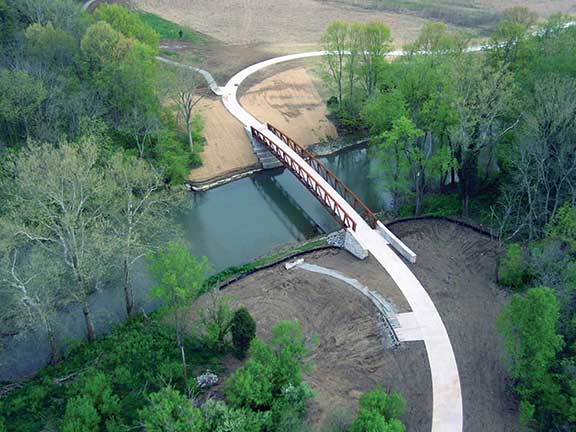Planning & Environmental
“… an excellent job developing concepts for the 31W/446 Scoping Study…a lot of thinking outside the box by Andy, Cody, Jeremy, and Annette. I was a doubter about the roundabout working at this location, but it looks like a feasible option now after the review…Excellent work as always.”
Joe Plunk, PE
KYTC Division of Planning
District 3
Transportation Planning and NEPA (the National Environmental Policy Act) present serious challenges that lead to decisions that last for generations. Getting it right means getting on with major projects that improve the quality of life. Getting it wrong, well, you won’t go there because we don’t go there. Qk4 is consistently called upon to undertake the tough projects, our experience has taught us the importance of taking seriously the responsibility that accompanies the execution of the NEPA and planning process. Our successes highlight our ability to help you make the best decisions and advance your project toward construction.
NEPA-related tasks range from the Minor Categorical Exclusions (CEs) to the extensive Environmental Impact Statement/Records of Decision (EIS/ROD) documentation. Our experience positions us to be equipped in successfully delivering federal approvals and funds.
Our approach to transportation planning is a cooperative process that promotes involvement by those who use or could be affected by the transportation system, from residents of a single neighborhood to everyone in a multi-county/state region. From community involvement to data modeling and analysis, our services stay focused on the key issue: improving the quality of life for the traveling public and affected communities. We have conducted transportation planning projects for numerous communities and private developers across the country, projects that have included a variety of scopes and issues.
Contact:
Tom Springer, AICP, CEP
NEPA is considered an umbrella policy and a process law. Our firm has been implementing the NEPA process for numerous federal projects and our goal is always to appropriately address the significant issues and, thus, obtain a signed document. Our process considers environmental, community, and economic goals early in the planning phase and carries them through all subsequent phases of project development. Our avenue for success is constant communication, innovative public involvement, proficient coordination with federal regulatory agencies, and employment of environmental experts throughout the decision-making process.
Through our proven experience, we understand the legal and environmental issues and processes necessary for NEPA documentation, including: Section 4(f), Section 106, threatened and endangered species, hazardous materials, air and water quality, environmental justice (EJ), indirect and cumulative impacts, and all other elements.
Our NEPA “Subject Matter” Expertise Includes:
- Environmental Overviews
- Air Quality Modeling and Mobile Source Air Toxics Qualitative Analysis
- Noise Modeling and Analysis
- Socioeconomic and Environmental Justice Impacts
- Phase I Environmental Site Assessments (ESAs)
- Section 106 Coordination and Management
- Public Involvement
- NEPA Documentation
Our staff is experienced with state and federal noise policies and procedures, and can produce well-documented traffic noise studies for Type I and Type II barriers. By actively participating in meetings with residents in a project???s vicinity, Qk4 takes the time to explain the noise analysis process and listen to the concerns of those who may be affected by noise associated with the project.
Phase I Environmental Site Assessments
Qk4 has the experience and tools to produce Phase I Environmental Site Assessments (ESAs) for clients concerned about potential hazardous materials for a proposed project. Our environmental team adheres to the “All Appropriate Inquiries” rule developed by the U.S. Environmental Protection Agency (EPA) in concert with the American Society for Testing and Materials (ASTM), International Standards.
NEPA Documents
NEPA documents and a certain way federal agencies approach them. Qk4 has authored short CEs for local governments, as well as multi-volume Tiered EISs for major bi-state projects. For each, success is in the details of the documentation and listening to the clients’ needs. The objectives are to document the process, the project, the impacts and the mitigation, in the spirit of full disclosure and project advancement.
Contact:
Tom Springer, AICP, CEP







